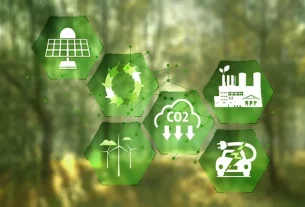For Black History Month 2024, the British Ecological Society (BES) journals are celebrating the work of Black ecologists around the world and sharing their stories. In this blog, Lekeah Durden shares her story and journey in academia.
Contact:
Affiliation: University of Georgia-Athens, USA
LinkedIn: https://www.linkedin.com/in/lekeahdurden
Ecological Interests
- Community Ecology
- Symbiosis
- Evolution
How did you get into ecology?
My passion for exploring the world and its diverse cultures has always fed my curiosity. Growing up in a small town in the Southwest (USA), I was captivated by world history and social studies, but it was during high school science courses that I knew I wanted to study biology.
My undergraduate journey introduced me to microbiology, where I became fascinated by the pivotal role microbes have played in shaping history. Consider the Black Plague and the Potato Famine—events that changed the course of society in profound ways. When I enrolled in a disease ecology course, it opened my eyes to the intricacy between health, environment, and disease agents. I learned how these elements can interact, often creating the perfect storm for potential disease spread.
This exploration of ecological interactions inspired me to delve deeper into the complexities of our world. Examining the factors that influence life history and plant communities. This can be applied to food security in crop production or even impact human health.
What are you researching/working on right now?
I just started a new position as a postdoc in Holly Bik’s lab. My project uses tiny worms called nematodes and the bacterial community that live with them (microbiome) to understand the environmental conditions in arctic sea sediment. This will inform us about the current arctic environment and how human impact might change the microscopic community over time. I’m learning new skills in data analysis and identifying the bacteria linked to these marine nematodes.
What do you enjoy most about your work or ecology in general?
I love learning how living and non-living factors can impact life history and coexistence. I especially enjoy applied ecology because it addresses meaningful ecological issues of today. Working on globally important projects that have direct impact on our communities, like biosecurity, sustainability, and even food safety.
The theme for BHM UK this year is ‘Reclaiming Narratives’. What does this mean to you?
For me, ‘Reclaiming Narratives’, is shifting conversations, funding, and research to increase representation in the broader scientific community. We are here, we contribute to science every day! I want more visibility so that the next generation of young scientists don’t grow up believing that Black in science is novel, I want it to be normal. I also want to reveal more of the hidden/untold stories and narratives of Black people. Our contributions had and still have important and influential roles in science history, not just a few popularized early Black scientists.
Are there any black ecologists or groups who are doing work you admire?
Shout out to the ESA Black Ecologist group, especially Matt McCary at Rice University, Botanical Society of America- BIPOC group, Women of Color & Non-Binary People of Color in Ecology & Evolutionary Biology (WOC in EEB) groups! My grad school peers doing really great work Delia Shelton; to last year’s 2023 Black History Blogger Adaoyibo Denise Okpala, I was also a big Captain Planet fan, growing up!
Are there any aspects of your academic career / personal journey as a Black ecologist that you wish to share (to encourage, raise awareness, etc.)?
For me, dealing with imposter syndrome- an underlying feeling that regardless of your credential and experience, you feel like an imposter- has been a challenging journey. I have been really encouraged by mentors and other senior scientists that have encouraged my research directions and growth as an ecologist. I appreciate their reassurance which has helped me build character and want to mentor and support others. I hope to encourage other aspiring young scientists to pursue their dreams.
Are there any ongoing issues in the ecological / academic landscape that you would like to highlight or have experienced?
I want to bring awareness and highlight retention challenges for marginalized communities in STEM.I saw many peers, especially women and BIPOC, struggle in graduate programs. It’s not the demanding coursework or heavy workload; it’s often the negative experiences —like feeling out of place, facing microaggressions, and struggling to fit in—that really weigh on students. If we are interested in diversifying the professoriate then we need also encourage a healthy scientific community which invites (and supports) different ideas and research priorities that might have meaningful impact to our communities.
If you could see one change in academia to positively impact Black ecologists, what would that be?
Promoting and supporting across all levels of the pipeline into science. Each career stage has different challenges and requires different types of support. I also believe that service work should be valued higher in promotion since it can disproportionately be tasked by women and marginalized identities.

